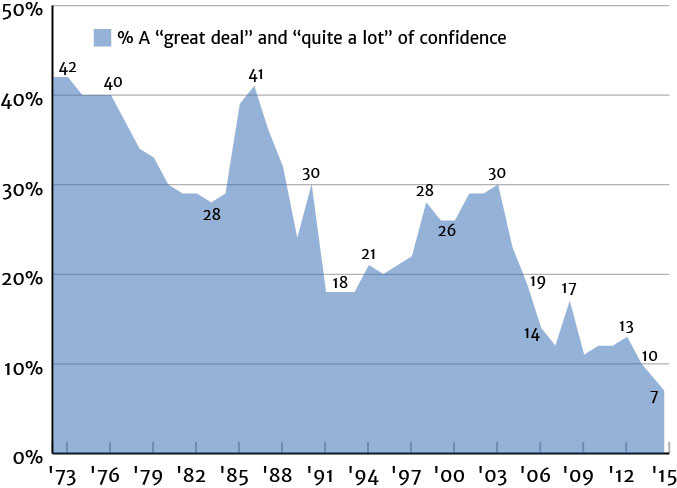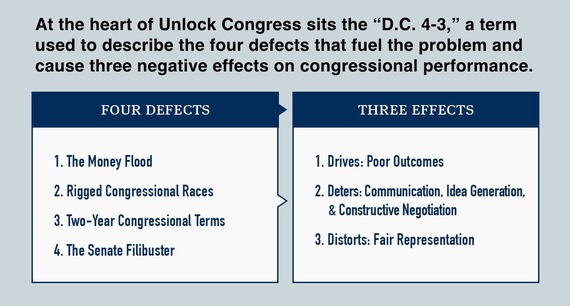Two debates down, and just look at those Outsiders go. Look at the Doc and the Face and the Narcissist increase their gains on the 13 other GOP candidates who have all previously held positions in elective office. One of these Outsiders will fix everything once they become president – just ask ‘em. The wisdom of inexperience. All they’ll need to do is bring their brilliant Outsider perspective and skill set to the nation’s capital and all will be well. Plausible?
The whole tableau reminds me of a line from S.E. Hinton’s classic 1967 novel The Outsiders. The main character and narrator, 14-year-old Ponyboy Curtis, makes a precocious observation:
“I lie to myself all the time. But I never believe me.”
So in this election cycle of the Outsider, do these Outsiders actually believe what they’re saying? Even more importantly, why should Americans believe a word of it?
Let’s start with the driving force behind the Outsiders’ appeal – voter anger. It is not new, but it is most certainly real. Just prior to the mid-term elections last November, a CNN/ORC poll revealed that “30 percent of Americans were ‘very angry’ and 38 percent were ‘somewhat angry’ about the way things are going in the country.” And the overwhelming majority of us believe our government plays an enormous role in the state of the nation.
In the summer of 2014, Gallup recorded public confidence in the U.S. Congress at 7 percent – the lowest rating in the 40-year history of the question. One year later, after a change to single-party control on Capitol Hill, public confidence landed at 8 percent.

The blame game in politics is usually a Rorschach test. Many Americans who identify with a specific political party or ideology are likely to believe that the opposing party of the moment is responsible for congressional failure. But we’ve seen depressing perceptions of Congress for decades – and during separate points in time when each party has had control of one or both chambers on Capitol Hill as well as the presidency.
And although the party out of power in the White House will castigate any current president as being the cause of government’s failings, when it comes to the broader electorate, perceived culpability doesn’t really swing so widely. If we take a snapshot of the last 15 years, we see that George W. Bush’s approval rating over the course of two terms was 49 percent, and Barack Obama’s 47 percent (to date). For the sake of comparison, Gallup pegs the average approval rating for all U.S. presidents at 53% over the last 70 years.
The Outsiders all say they’ll flip this script, lickety-split. Fiorina: “Only someone who will challenge the status quo of Washington, D.C. can lead the resurgence of this great nation. I will do that.” Carson: “If you look at the collective political experience today of everybody in Congress, it comes out to something like 8,700 years. Where has it gotten us?” And then there’s Trump, who labels all politicians as dummies. Except the ones who like him. But the rest are losers: “They go to Washington, something happens. They become weak.” But Trump will fix everything, and says it will be easy: “Our country needs a truly great leader, and we need a truly great leader now. We need a leader that wrote The Art of the Deal.”
So the Outsiders don’t like the status quo, and they’re the ones uniquely qualified to fix it. They don’t like this president, and they voice plenty of qualms with his predecessor – who was nominated by their own party. They group all 535 elected members of our elected U.S. Congress as feckless people who haven’t gotten the job done. Why? Because they’re professional politicians – always worried about the next election. Or because they’re constantly raising campaign cash, inducing them to behave as lapdogs perpetually indebted to their contributors.
The irony hiding inside these arguments from the Outsiders is in the way they heap blame on the individuals who’ve been elected to leadership positions in the legislative and executive branches – instead of on the rules in the system that conspire to sustain the status quo. All of them ignore the fact that we have had a guiding legal charter in our country for 236 years called the U.S. Constitution. We have a separation of powers in our federal government structure that was created and designed quite intentionally by our founders. Surely the Outsiders are aware of these basics of middle-school civics, but you would be hard-pressed to be assured of it listening to their authoritarian statements of what will be once they’re settled into the Oval Office.
Surefire promises to control the value of China’s currency or repeal the Affordable Care Act or build walls on the border or overhaul the tax code are not objectives that can be achieved by the will of a single executive on Pennsylvania Avenue. Legislation is usually required – which also requires the involvement and cooperation of a legislative branch that has been proven to be defective.
But you don’t hear the Outsiders talk about how they would negotiate with Congress. You only hear platitudes about shaking up the system. No details, just unvarnished confidence. This is what passes for “straight talk” these days – giving a whole new meaning to the expression that “talk is cheap.”
If the complaint is that politicians are always running for reelection, perhaps it’s time to investigate and reform the rules that compel them to do so. If the complaint is that our elected leaders are owned by billionaires and special interests, perhaps it’s time to investigate and reform the rules that permit – and encourage – all of those dirty dollars to course through the system. If the objection is that U.S. representatives are too ideologically rigid and cannot pass effective public policy, then perhaps it’s time to examine the rigged races that in 2014 saw 96% of incumbents reelected. And if the U.S. Senate has a majority of members ready to vote on a hugely consequential foreign policy agreement, or any piece of legislation for that matter, perhaps it’s time to investigate why they’re not allowed to hold a vote.
To put a twist on a phrase from a famous political consultant: “It’s the rules, stupid.” Rules that have permitted and created a set of structural defects that spawn negative outcomes.

It’s easy to criticize the individuals and the parties in Washington. And no doubt some of that criticism is legitimate. We have a partisan divide in our country and in our capital. But that’s not all. We also have a set of obsolete and wrongheaded rules that mangle the incentives for our leaders, and do not promote a virtuous decision-making process. The GOP Outsiders won’t talk about this – it’s not good TV and they desperately need to be good on TV. Most of the media won’t write or talk about this for the same reason. It’s a more complex discussion and complexity is often the enemy of attention span.
The wind-up is that this is now on us. We the people. We need to look past the entertainment package being presented, and take a closer look at the actual product failure. We need to begin having a conversation about how to correct the defects.
American anger is real. But that anger, as well as the Outsiders’ generalized political responses to it, are to a great degree misdirected. It’s time to stop pointing fingers solely at the people serving in office. It’s time to start zooming the lens in on the less obvious, yet highly consequential drivers of the dysfunction. Let’s take a look at the rules.


